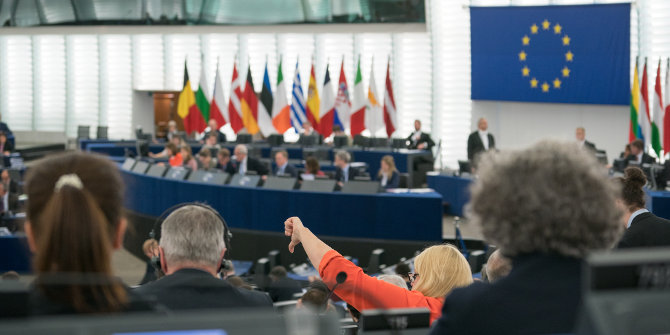The European Union is trapped in an inevitable cycle, with every election marked with predictions of the inevitable collapse of the bloc, UnHerd reports.
This time, however, the situation is somewhat different. The victory of Geert Wilders’s Freedom Party (PVV) in the Dutch general election last month could have an even greater impact on the bloc’s cohesion than the recent economic turmoil.
The traditional source of instability within the euro zone has always been the economy, with its austerity policies imposed by the European Commission on so-called peripheral countries such as Italy, Greece and Spain. The measures have led to threats of leaving the currency system, but the proposed technical solutions have always pushed the fundamental problem beyond the surface.
The strategy is to mitigate and soothe rather than resolve political anger. Sometimes populist parties elected against the backdrop of this discontent are absorbed into the Brussels apparatus promoting certain ideas. Italy’s new government, led by Giorgia Meloni, is a prime example of co-optation in action.
Yet the latest round of elections across Europe revealed that frustrations have taken root in the Netherlands, France and even Germany, long seen as key eurozone countries.
Marine Le Pen’s Rassemblement National party posted its best results ever, while President Emmanuel Macron’s party lost its majority in parliament.
German Chancellor Olaf Scholz‘s Social Democrats rank third, trailing the populist Alternative for Deutschland (AfD), which has increased its share of the vote in the country to 21 per cent, according to the latest polls.
In the Netherlands, the PVV party, led by Geert Wilders, known for his anti-Islam, anti-immigration and anti-European rhetoric, won last month’s election. The party secured 37 of the 150 seats in the Dutch lower house, representing almost a quarter of the popular vote.
The situation is similar in Sweden, whose main parties, which previously co-operated to exclude outsiders from government, are now governed by a coalition including national-oriented Democrats.
This is very similar to the revolt of the 2010s, a symptom of a broader restructuring of European conservatism. Like Donald Trump influencing the Republican Party, Europe’s populist leaders are seeking to turn conservatism, defined by traditionalist instincts, into a movement against the mainstream, unpredictable and in some ways alarming.
The perception of Europe encouraging uncontrolled migration is the main driver of this movement. Just under 1 million asylum applications were submitted to the EU in 2022, which is 52 per cent more than in 2021.
The problem is exacerbated by Washington’s potential refusal to support Ukraine, leaving Europe to fund and rebuild a war-torn country whose millions of residents have emigrated to other parts of the continent. As a result, the surge of huge numbers of refugees and irregular migrants has severely affected the EU’s asylum system, with the bloc’s members failing to agree on a balanced method of allocating responsibility for asylum seekers.
Moreover, the unequal burden of climate change mitigation costs has also played an important role in fuelling discontent across the EU, from the gilets jaunes protests in France to the resentment of Dutch farmers, as Rutte’s coalition proposed cutting agricultural production to address climate concerns.
Such problems are not easily solved by simple technical economic adjustments to monetary union or by relaxing the rules of the Stability and Growth Pact. The problem is further compounded by the fact that European left-wing parties are increasingly seen as out of touch with the problems facing ordinary citizens.
In the last few elections, European voters have been offered nothing but “There is no alternative,” policies from both the left and the right. And regardless of which party European citizens vote for, the policies remain the same, which has increasingly fuelled a shift towards more radical populist political groupings.
Populist leaders benefit the most as they initially positioned themselves as outsiders and critics of the “ruling elite,” which made it easy for them to capitalise on popular anger directed at the EU and national governments.
As a result, the EU faces a situation much like that of post-communist Yugoslavia. Once the Tito government exhausted itself, the delicate ties between the country’s states collapsed. Similar fractures are now emerging across the European Union, which lacks a charismatic nominal leader.
The threat to the Union is real, and it is exacerbated by the possible need for leaders to urge an “ever closer union,” which will further alienate voters. This time, predictions of a breakup of the European Union do not seem exaggerated.
